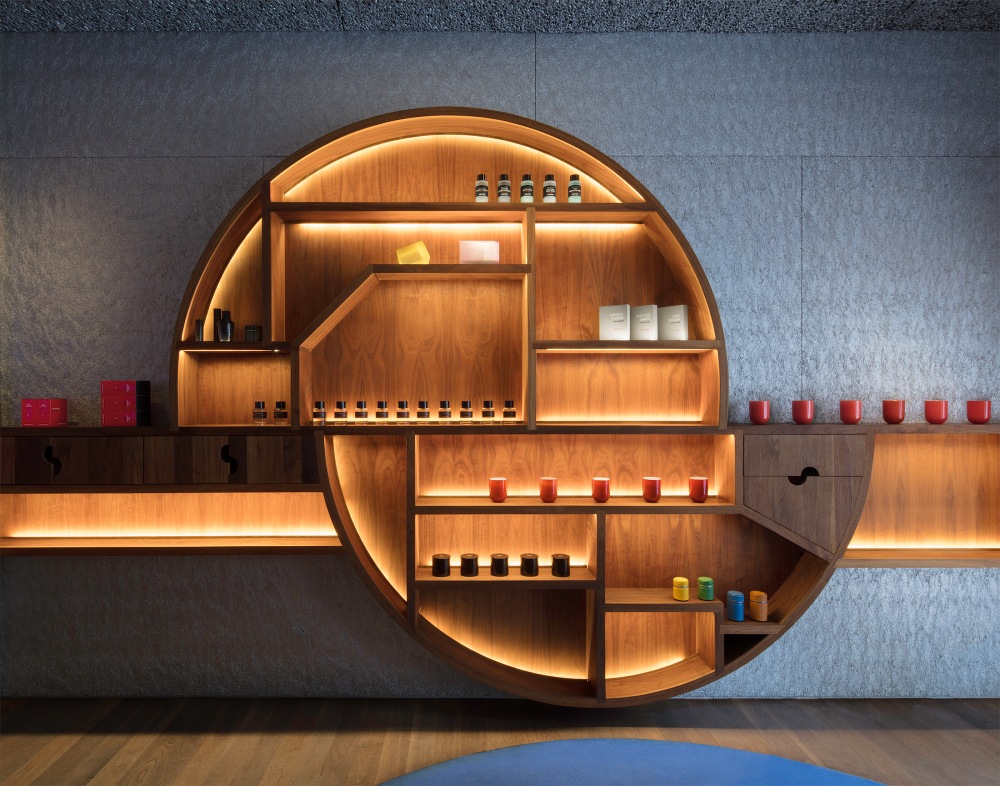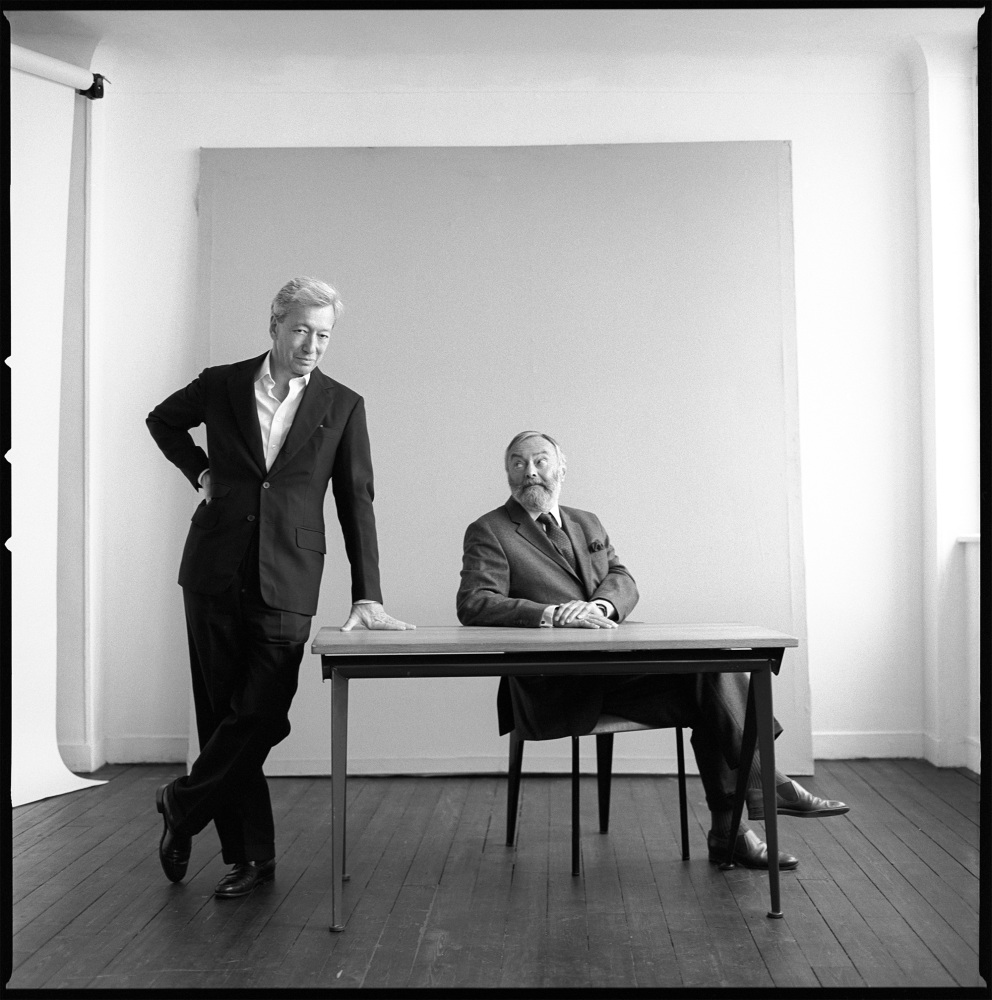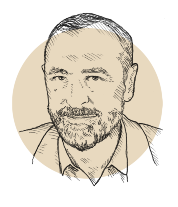Creating perfumes like Gallimard edits novels. Giving their authors, the “noses,” the time and means to fully express their art, free from market analyses and restrictions on the product’s overall cost. Refusing formatted fragrances sold en-masse on the shelves of chain perfume stores. Seeking out the excep- tional, the original, the “wow” factor. When Frédéric Malle founded his eponymous company in Paris in June 2000, he turned his back on the sector’s accepted codes and fashions. Twenty years later, he has conquered the world, and his elegant black, white, and red bottles are sold in some 50 countries, including China as of last year. A coffee-table book, published by Rizzoli, was also released in late 2020, looking back over two decades of daring and creativity.
The French perfumer is the nephew of director Louis Malle and has lived in the United States since 2006. “I was lucky to grow up between the two countries for family reasons. The amazing success of Editions de Parfums Frédéric Malle in the U.S., almost from the onset, was really the determining factor in moving to this country. I also have four children and I wanted them to be citizens of the world, not just French.”

At the age of 58, Frédéric Malle has remained faithful to his original, radical vision. He sold Editions de Parfums to American group Estée Lauder in 2015, but still works closely with the management and creative teams. His passion for photography, music, fashion, design, and architecture led him to blend all the arts with the world of perfumery. And this mixture of passion and meticulousness is palpable in every aspect of his brand, whether crafting a new “jus,” supervising the layout of his stores, or designing the holders for his scented candles.
From Art History to Perfumery
“If there were fragrance royalty, Frédéric Malle would have a title,” wrote the New York Times in 2017. His grandfather, Serge Heftler-Louiche, founded the perfume department for Christian Dior, a childhood friend. His mother, Marie-Christine Sayn-Wittgenstein, was creative director of Dior Perfumes. But the young Frédéric decided to study art history, first at Sotheby’s in London, then at NYU two years later, where he also took economics classes. After returning to Paris, he worked in advertising before the perfume world caught up with him. In 1988, he joined a laboratory just outside Paris owned by Roure, a longstanding company from Grasse, the perfumery capital in Provence.

Frédéric Malle met several “noses” while at Roure, including Dominique Ropion, Jean-Claude Ellena, and Edouard Fléchier, who proved to be close allies when he launched Editions de Parfums ten years later. These leading names in the profession are behind some famous fragrances sold by the millions, but the public may never have heard of them. Almost all of them are French, which is no coincidence: “The best noses in America, historically, have been French,” says Frédéric Malle. “Perfumery is well imbedded in French culture, more so than it is in the U.S. Also, the way we teach perfumery asks perfume students to associate the ingredients that they learn with their personal journey, including the taste of food and various smells from their everyday life.”
From Iris Poudre (Pierre Bourdon, 2000) to Rose & Cuir (Jean-Claude Ellena, 2019), some 30 perfumes have been produced in 20 years, in collaboration with a dozen noses who each leave a signature on their creations. Depending on the fragrance, creating a single perfume “can take between six and eighteen months,” said Frédéric Malle in January in a video interview at the French Institute Alliance Française (FIAF) in New York. “Eighteen months is a nightmare, but sometimes it’s worth it. Carnal Flower (Dominique Ropion, 2005), which is a fantastic fragrance, took a total of 690 tests!”
Article published in the March 2021 issue of France-Amérique. Subscribe to the magazine.












